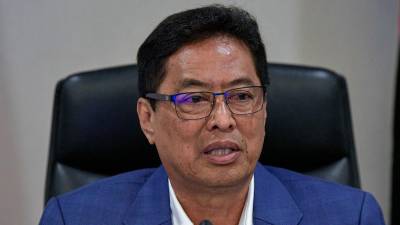KUALA LUMPUR: The Malaysian Anti-Corruption Commission is strengthening its forensic investigation capabilities to combat increasingly complex financial crimes.
Chief Commissioner Tan Sri Azam Baki said the commission is providing officers with advanced training to detect and track corrupt transactions effectively.
This training involves professionals from other agencies and is coordinated through the Malaysian Anti-Corruption Academy.
MACC has signed memoranda of understanding with MAICSA and Asia e University to produce highly educated officers.
Since 2017, 517 MACC officers have received accreditation from programmes conducted with Nottingham Trent University.
Azam revealed the country has suffered estimated losses of RM277 billion over the past six years due to corruption and leakages.
Weaknesses in government procurement systems and tender manipulation are identified as primary causes of these losses.
MACC supports the implementation of the Government Procurement Act 2025 to address beneficial ownership declaration.
From January 1 to July 31, 2025, the commission opened 728 investigation papers including 109 high-profile cases.
Private agencies recorded the highest number of investigation papers at 280, followed by federal government officers with 198 cases.
False claims accounted for 251 investigation papers while acceptance of bribes involved 239 cases.
During this period, 906 individuals were arrested with 308 charged in court and 135 convictions secured.
From January 1 to August 29, assets worth RM6.81 billion were seized and RM31.71 million frozen.
MACC is now focusing on investigating large-scale cases and syndicates rather than smaller offences.
The commission has never closed any corruption case and some have been reopened following new information.
Asset recovery is being prioritised through the proposed implementation of Deferred Prosecution Agreements.
The Cabinet Committee on National Governance has agreed that the DPA-related Bill will be tabled in Parliament next year.
Deferred Prosecution Agreements are practised in developed countries like the United States and United Kingdom.
MACC is developing a digital and artificial intelligence system to screen tender applicants for transparency.
This AI-based system aims to reduce human interference in the government procurement process. – Bernama
